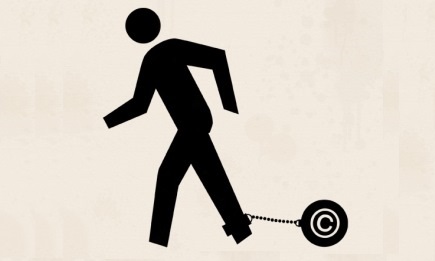Will EU-copyright strengthen HE?

With regard to Text and Data Mining (TDM) it is now time to walk the talk, LERU says. It is essential to turn the irreversible but primarily implicit references, announcements and promises in the present Communication (and accompanying Q&A) into an explicit mandatory exception in the Spring legislative proposal. LERU, the League of European Research Universities, has long campaigned for an Exception for Text and Data Mining, which cannot be overridden by contract, which would be mandatory for all Member States, and which would allow anyone with legal access to content to perform content mining.
It states in a first reaction: “Today’s Communication reflects many of our views,” and notes “that the lack of a clear EU provision on TDM for scientific research purposes creates uncertainties in the research community. This harms the EU’s competitiveness and scientific leadership at a time when research and innovation (R&I) activities within the EU must increasingly take place through cross-border and cross-discipline collaboration and on a larger scale, in response to the major societal challenges that R&I addresses.”
Lawful access
The Commission implicitly rejects the position on licensing for TDM which the recent EPP Group position paper on copyright reform advocated. Instead, Juncker c.s. will consider a legislative proposal for Text and Data Mining in 2016 to allow public interest research organisations to carry out text and data mining of content to which they have lawful access, with full legal certainty, for scientific research purposes.
This is a significant step forward, in LERU’s view. “Europe lags behind countries in the world which already have legislative frameworks in place to facilitate Content Mining. The rejection of licencing as an approach is welcomed, as LERU has long argued that this would be unnecessary and a burden. The development of a mandatory Exception, which cannot be overridden by contract or Technical Protection Measures, will bring enormous benefit to European researchers and the European economy, stimulating research and development, the creation of new jobs and commercialization opportunities.”
The time for action is now
In two respects the Communication is lacking according tot he HE-alliance. The document of the Commission says that it is assessing options and will consider legislative proposals. “The Commission has had years to consider options and proposals. It is time to stop considering and to start implementing. The time for action is now. LERU is disappointed that the legislative programme is not addressed in a more convincing and coherent way.”
The Communication also seeks to limit the scope of the Exception to ‘public interest research organisations’. While this will benefit universities, research organisations and their researchers, it raises some additional questions. “Where does Citizen Science fit in? On this definition, citizen scientists would not necessarily be able to take advantage of the Exception. Yet Citizen Science is a fundamental part of the Commission’s agenda for Open Science.”
“The proposed restriction of the scope of the Exception also excludes SMEs (Small and Medium Sized Enterprises). These companies have legal access to commercial materials for which they pay. Why then should they be denied a legal right to undertake Content Mining on that content? LERU notes that both Citizen Scientists and SMEs are increasingly partners of universities in research, and any distinction in outcomes can not be made. Although the present formulation (hopefully) might cover citizens´ science and SMEs when involved in partnerships with universities, LERU requests that all bodies and individuals would enjoy the benefit of legal certainty to undertake Content Mining on all materials to which they have lawful access, and that this is made explicit through an all-encompassing definition of the beneficiaries.”
Long overdue
So this new document is seen as a significant, long overdue, step in progressing copyright reform in Europe, creating a copyright framework which is fit for the digital age. “It seeks to create, finally, a modern but also more European copyright framework”, acknowledging the need to “inject more single market”. It also sets the way for an ambitious long-term vision which includes the full harmonisation of copyright in the EU – in the form of a single copyright code and a single copyright title – and the uniform application of the rules by a single copyright jurisdiction. “This is indeed a conditio sine qua non for a real and credible European Research Area,” LERU applauds.
“LERU urges the Commission to proceed as speedily as possible with a mandatory Exception for Content Mining, which cannot be overridden by contract or Technical Protection Measures. Legislation to that effect should appear in the early Spring. And the scope of the Exception should be widened to give legal certainty to all those with legal access to content to undertake Content Mining activity. The right to read is the right to mine (cf. Murray-Rust, 2012). In doing so, the Commission would truly create a copyright framework in Europe fit for the digital age.”
Meest Gelezen
Wederom intimidatie van journalisten door universiteit, nu in Delft
‘Burgerschapsonderwijs moet ook verplicht worden in hbo en wo’
Raad van State: laat taaltoets nog niet gelden voor hbo-opleidingen
Vrouwen houden universiteit draaiende, maar krijgen daarvoor geen waardering
Extra geld voor bètafaculteiten is daar nooit terechtgekomen



